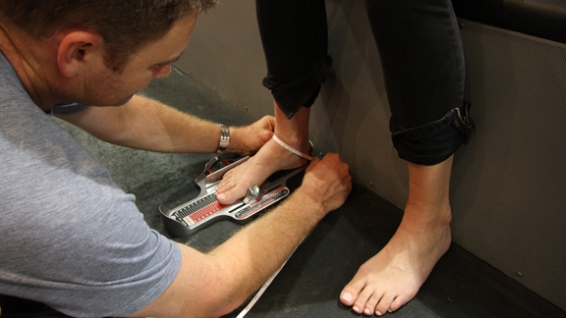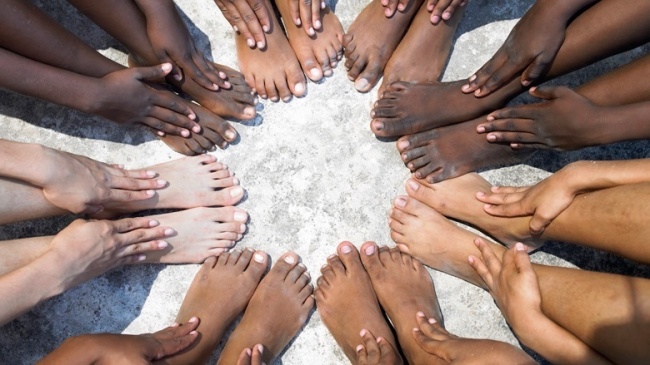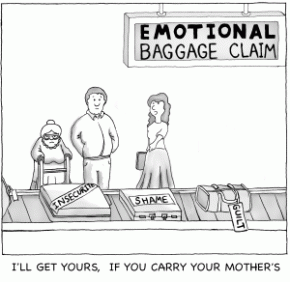“I don’t know if I will live to finish this” (Monette). This is the first line in Paul Monette’s memoir, Borrowed Time: An AIDS Memoir. If someone asked me what HIV and AIDS were a month ago, my answer would have been relatively straightforward. HIV stands for the Human Immunodeficiency Virus, a retrovirus that eventually progresses to AIDS. The virus integrates itself into a person’s DNA, and once it has invaded, it is there to stay. Risk factors include unprotected sex, sharing intravenous needles, and any other blood or sexual fluid transfer. Young gay men who have sex with men are at increased risk, followed by intravenous drug users. AIDS is an acronym for Acquired Immunodeficiency Syndrome, a disease that is characterized by an extremely weakened immune system and chronic wasting of the patient. The disease is treatable if you have the money to afford antiretroviral therapy drugs, but as of now there is no cure. That is what first came to mind when I think of HIV/AIDS before I read Paul Monette’s memoir.
Borrowed Time is not the typical book one would read to learn about HIV/AIDS, but I feel that it has taught me more than any textbook on the subject could ever teach. To attain some background on this book, the memoir chronicles the adult life of Paul and his long-time partner, Roger. They seem like a normal gay couple living in California; a writer (Paul) and a lawyer (Roger). They have a dog, many friends, and a supportive set of older family members. However when Roger was diagnosed with AIDS, their white, upper-middle class privilege seemed almost insignificant compared to the stigma that they now faced due to being a gay couple with AIDS. Paul also eventually was diagnosed with the disease, however he focuses the story on Roger’s battle. While reading this story, themes became apparent, and the dots between real life, research, and practical application seemed to start connecting themselves in my mind.
“I wish my fellow warriors hadn’t lost the first four or five years bogged down by homophobia and denial” (Monette).
I will be honest in saying that before I read this book, I had only scraped the surface of the political and bureaucratic scene around the beginning of the AIDS outbreak. I think, however, that Paul educated me better than any medical history textbook could have. Paul did not get extremely analytical about the political climate surrounding AIDS at this time, but his subtle comments were enough to see how conditions were. “… the closeted gay man at the National Institutes of Health who buried the AIDS data for two years, that’s when I understand how doomed we were before we ever knew” (Monette). There are many instanced in this memoir when Paul reflects back with a very “what if” mentality. Paul found that the Western Blot test had been in place and antivirals available, but the information was either kept from the general public or they just did not find out about it until too late.
The systematic oppression is clear by these passages as well as others from this memoir. One of the most important questions in feminist analysis is “Who is being left out?” It is clear that at this time, the people being left out were the people slowly suffering and dying from a disease that could have been managed much better if more effort and resources would have been allocated to it. The answer to this is clear – the LGBT community needs more advocates to promote their equality both in the health care field as well as in general society. Fortunately, the National Institutes of Health (NIH) may have just recently taken a step to become an advocate for the LGBT community. On June 27, 2013 the NIH launched a Request for Information which invites “comments and suggestions” on the many health and health research issues and concerns for members of the LGBT and intersex populations. It is not disputed that the LGBT community has been left out of many aspects of medical research as there is simply very little funding for it, but this progressive step by the NIH may help to prevent future incidences of disconnect as described by Paul.
On the bus
“It’s a curious phenomenon among gay middle-class men that anything faintly venereal had better be taken to a doctor who’s ‘on the bus.’” Paul frequently used the phrase “on the bus” to describe someone who was also gay like himself. “Is it a sense of fellow feeling perhaps, or a way of avoiding embarrassment? Do we really believe that only a doctor who’s our kind can heal us…” (Monette). At first it seemed like a colloquial phrase that was part of the gay community at this time’s language. As the phrase continued to surface throughout different parts of the book, a connection was made. Many of these people that Paul was describing as “on the bus” were health care professionals. From doctors to nurses, there were gay people as well as family and friends of gay people working on almost every aspect of Roger’s treatment. Interestingly, these men and women were the ones that Paul describes as the most influential to Roger’s spirit and also his health.
Conversely, the heterosexual doctors were some of the least caring, with exceptions of course. Paul recalled a time when he went to his doctor to get sleeping pills, and told the doctor about Roger’s AIDS status. “What do I do?” he asked. The doctor’s response: “He shrugged his shoulders with a cavalier unconcern I can only attribute to his certainty that he was safe himself. I’ve seen that straight man’s shrug a hundred times. ‘Burn the blankets,’ he replied facetiously” (Monette). The heterosexual privilege that this man possessed is clearly enough that he does not even want to think about AIDS, because as Paul states, he believes he is safe from it. Do heterosexual people in general still have this attitude today? I would hope that the problem is not as dreadful today as in the time of Paul and Roger, but many straight people still do not realize how their privilege affects both themselves and those who have less privilege in today’s heteronormative society.
How does this connect to today’s world? Many people think that the societal oppression which comes with identifying as LGBT is not important when it comes to health care seeking behaviors. The University of California at San Francisco has done something revolutionary to encourage members of the LGBT community to feel safe on their campus and access health care at their facilities: they have created an ‘Out List.’ This list contains hundreds of names of faculty members, students, residents, staff, alumni/ae and others associated with UCSF that identify as LGBT. In addition some members are denoted with a + next to their name. These people are bravely telling the world that they are HIV positive. I have always thought that this was a revolutionary idea to create safety and community between members of the LGBT population. It is not surprising that the UCSF Medical Center has earned a perfect score for health care equality for the past six years. I would like to think that Paul and Roger would have been very happy with this Out List.
“AIDS was for losers. Too much sleaze, too many late nights, very non-Westside” (Monette)
“I saw a split develop in gay men around that time, as people fled into themselves,” Paul recalled. “I watched AIDS become gossip, glib and dismissive, smutty, infantile” (Monette). Roger could not tell his clients that he had AIDS, as the stigma was so great at the time that he would have lost his practice as a lawyer. As if the stigma from being gay at the time was not enough… Finally the Reagan administration was going to do something about this problem, but only because “the disease was a threat to ‘the general population’” (Monette). This is to suggest that the gay men, who at this time in the mid-1980s constituted the vast majority of AIDS cases, were not a part of the general public, nor were they validated enough themselves to warrant something being done about this severe problem. It was then that the straight people could be at risk that the government stepped in, if one could call it stepping in.
Unsung the noblest deed will die- Pindar, Fragment 12 (In the preface of Borrowed Time)
After Roger died, Paul lived to finish this story and died years later from AIDS –related complications. Being able to appreciate the personal aspect of AIDS is something that I would have never been able to do without reading this memoir. I always used to think of AIDS (and really any disease) as a pathological occurrence that somehow damages the body’s physiology, in this case eventually causing death. While this physiological knowledge is important, I feel that my new appreciation for the personal aspect of this disease, the relationships damaged, the friends lost, the struggle to fight and live in a society that sees you as a second-class citizen, is a viewpoint that many people do not have the opportunity experience. Although this was obviously a second-hand experience for me, I can see the change in how I think. As I was thinking about how this memoir related to the research I aspire to complete, I found that I was not thinking in terms of statistical design or quantitative analysis, but rather in a mindset focused on how these issues affect people on a personal level instead of a population level. How do a patient’s sexual orientation and their health care provider’s sexual orientation interact? How can we as a society make our population less homophobic and more accepting so that people do not hide data in the future and so that those in the LGBT population like Paul feel like they can see a health care provider without extreme fear for their safety? The answers may not be currently apparent, but I believe that we are moving in the right direction.
I believe that one of Roger’s IV nurses had one of the best quotes in this memoir: “If you don’t like AIDS get out of medicine, because this is where it is” (Monette). Now take out the word AIDS and insert gay people, insert Black people, insert physically disabled people. One goes into medicine to heal all people, in my humble opinion. I challenge others and myself to remember that medicine is diverse, and we choose to go into this field because we truly care about the health of all individuals, no matter that their identities may be.
Works Referenced
Monette, Paul. Borrowed Time : An Aids Memoir. 1st ed. San Diego: Harcourt Brace Jovanovich, 1988. Print.



